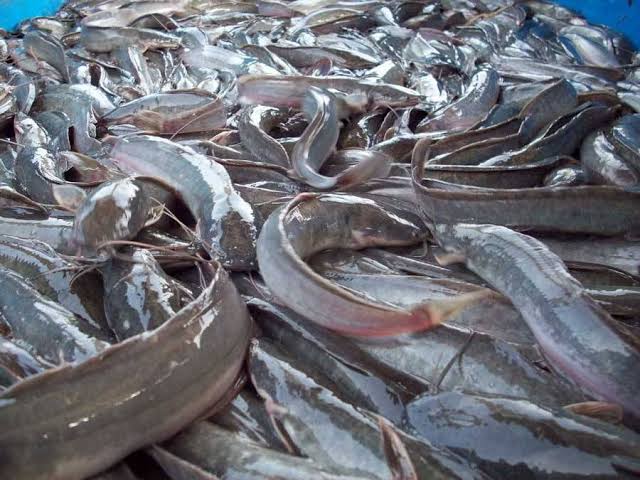The federal government has set a target of producing 1.3 million metric tonnes of fish, aiming to boost local supply and reduce import dependency.
The Minister of Marine and Blue Economy, Adegboyega Oyetola, announced the initiative on Tuesday at a two-day workshop in Abuja, focusing on the National Fisheries and Aquatic Culture Policy of Nigeria.
The minister highlighted the many challenges that Nigeria’s fisheries and aquaculture sectors face, including illegal and overfishing, environmental degradation, and inadequate infrastructure and technology.
Addressing these issues, Oyetola emphasized, is essential for unlocking the country’s aquatic resources and achieving sustainable growth.
“We are blessed with an extensive coastline and vast inland waterways, yet we face a significant fish production gap,” Oyetola said.
“With support from global partners like WorldFish and the International Food Policy Research Institute (IFPRI), we’ve developed a comprehensive National Fisheries and Aquaculture Policy to sustainably harness our marine resources.”
A monitoring and evaluation specialist from IFPRI, Adetunji Fasoranti underscored Nigeria’s shift toward agriculture and aquaculture as the country seeks economic diversification.
“Historically dependent on oil, Nigeria is now investing in agriculture to boost rural employment, enhance food security, and reduce its reliance on imports,” Fasoranti noted. This policy, he added, leverages data and evidence to build a resilient and diversified economy.
WorldFish representative Sunil Siri further highlighted the pressing need to increase local fish production. “With Nigeria currently meeting only 20% of its fish consumption needs, we are committed to supporting efforts to raise this to 75%, helping Nigeria reach its food security targets,” Siri said.


